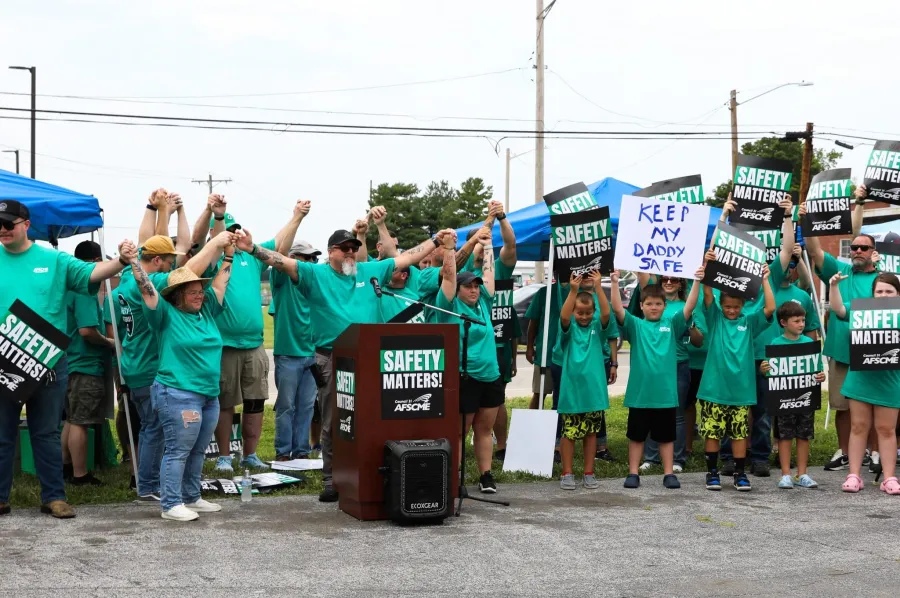AFSCME members in corrections protest unsafe conditions at Menard Correctional Center in Illinois

On July 8, members of AFSCME Local 1175 (Council 31) at Menard Correctional Center took to the picket line with a simple message for the Illinois Department of Corrections: Our safety matters!
The informational picket was organized following a spate of assaults on correctional officers at Menard, a maximum-security facility that often receives individuals in custody who have committed assaults elsewhere in the system.
From January to March, Menard staff experienced more than 30 assaults by incarcerated individuals. More recently, an offender headbutted an officer, breaking his nose, requiring hospitalization and surgery. The very next day, six officers required outside medical treatment following an assault by an offender swinging handcuffs as a weapon.
“As awful as these incidents were, we’re fortunate that they weren’t worse,” Local 1175 President and Correctional Sgt. Rick Hepp told The Southern Illinoisan. “But we can’t rely on good fortune. Before the worst can happen, we demand that management take responsibility for improving our working conditions.”
While Local 1175 organized the picket, the issues they face at Menard have become all too common at many other prisons across the country. Menard workers were joined in solidarity by AFSCME retirees and members of 10 other AFSCME locals, as well as members of the United Mine Workers of America.
The dangerous working environment for front-line workers at Menard is made worse by severe understaffing at the facility.
“Allocated headcount is considered the minimum requirement for a safe facility,” said AFSCME Council 31 Regional Director Eddie Caumiant. “We’re running at half of that.”
Council 31 is demanding that the Illinois Department of Corrections meet with them to discuss concrete steps being taken to make the facility safer, as well as to provide information on how the department is filling the vacant positions at the facility.
“We will not back down until the department takes safety seriously, hires for the allocated positions, and makes the changes necessary to keep IDOC workers safe on the job,” Caumiant said.
Public safety professionals are increasingly turning to AFSCME to build power at work, and to advocate for safety on the job, better wages, good health care and a secure retirement. AFSCME members in corrections, law enforcement and emergency response defend our freedoms and those of the communities we serve.
